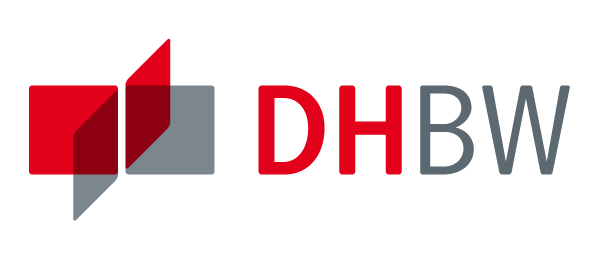Prof. Dr. Ulf-Daniel Ehlers
Veröffentlichungen
-
(2009) : Bridging the Gap. E-Learning for Capacity development in Development Cooperation In: International Council For Open and Distance Education: ICDE World-Conference: 23rd ICDE World Conference on Open Learning and Distance Education: Maastrich: 7- 10 June
-
(2009) : Catching a Moving Target?! Global Quality for eCapacity Building In: International Council For Open and Distance Education: ICDE World-Conference: 23rd ICDE World Conference on Open Learning and Distance Education: Maastrich: 7- 10 June. Online verfügbar unter https://www.researchgate.net/publication/306401111_CATCHING_A_MOVING_TARGET_GLOBAL_QUALITY_FOR_ECAPACITY_BUILDING?_sg=7UhpA1WHZMzQiBWHWk0aa9-ofgLL5LoBB1jKdfpWZm0VB6tvTsW3EKcYnpuRcg5sVnHy1rGPUTSWNjUWoRufJk11qFz9F5uzyiirSXpf.j3WLxlM0ibdArO8zXrpu49Eetf37sLQM6Gc2L4L_PiHYRHn-us59xchilZ9EnYdCB8vvmFmfZ1yfnxt9WQFYFg
-
(2009) : Catching a Moving Target?! Global Quality for eCapacity Building In: Apostolopoulos, Nicolas: E-Learning 2009: Lernen im digitalen Zeitalter, 51. Gesellschaft für Medien in der Wissenschaft; Europäische Jahrestagung der Gesellschaft für Medien in der Wissenschaft: Münster: Waxmann (Medien in der Wissenschaft), S. 15-29. Online verfügbar unter https://www.waxmann.com/?eID=texte&pdf=2199Volltext.pdf&typ=zusatztext
-
(2009) : Reflexion im Netz: Auf dem Weg zur Employability im Studium In: Apostolopoulos, Nicolas: E-Learning 2009: Lernen im digitalen Zeitalter, 51. Gesellschaft für Medien in der Wissenschaft; Europäische Jahrestagung der Gesellschaft für Medien in der Wissenschaft: Münster: Waxmann (Medien in der Wissenschaft), S. 15-29. Online verfügbar unter https://www.pedocs.de/volltexte/2011/3093/pdf/Ehlers, Ulf-Daniel_et_al_Reflexion_im_Netz_D_A.pdf
-
(2009) : Designing Collaborative Learning for Competence Development In: Szűcs, András; Bernath, Ulrich; Tait, Alan; Vidal, Martine (Hg.): Distance and e-learning in transition: Learning innovation, technology and social challenges, 46: Hoboken, N.J., US: ISTE/John Wiley, S. 195-216. Online verfügbar unter https://www.researchgate.net/publication/260423520_Designing_Collaborative_Learning_for_Competence_Development
-
(2009) : Learning Communities and Networks: Innovation and Quality for new Learningscapes In: European Distance and E-Learning Network: EDEN Conference 2009: Innovation, learning and learning innovation in Europe: Danzig. Online verfügbar unter http://www.eden-online.org/wp-content/uploads/2016/05/Annual_2009_Gdansk_BOA.pdf
-
(2008): ERA – e-learning readiness analysis. An e-health case study of e-learning readiness. In: Springer Communications in Computer and Information Science (CCIS) Series. “The open knowledge society. A computer Science and Information Systems Manifesto”. First World Summit
-
(2008) : Stepping up the Ladder. Competence Development Through E-Learning In: Luca, J.; Weippl, E. (Hg.): Proceedings of ED-MEDIA 2008--World Conference on Educational Multimedia, Hypermedia & Telecommunications: EdMedia + Innovate Learning: Vienna, Austria: Jun 30, 2008. Association for the Advancement of Computing in Education: Waynesville, NC, S. 4068-4082. Online verfügbar unter https://www.learntechlib.org/p/28954/
-
(2008) : Stichwort E-Learning: Die Enzyklopädie der Wirtschaftsinformatik: GITO Verlag. Online verfügbar unter http://www.enzyklopaedie-der-wirtschaftsinformatik.de/lexikon/daten-wissen/Wissensmanagement/Lernprozesse/index.html/?searchterm=ehlers
-
(2008) : Stichwort Lernprozess In: Kurbel, K.; Becker, J.; Gronau, N. (Hg.): Enzyklopädie der Wirtschaftsinformatik: Online-Lexikon. Online verfügbar unter http://www.enzyklopaedie-der-wirtschaftsinformatik.de/lexikon/daten-wissen/Wissensmanagement/Lernprozesse/index.html/?searchterm=ehlers
-
(2008) : Turing Potentials into Reality. Achieving Sustainable Quality in E-Learning through Quality Competence In: Adelsberger, Heimo H.; Collis, B.; Pawlowski, Jan Martin (Hg.): Handbook on information technologies for education and training: 2nd ed.: Heidelberg: Springer (International handbooks on information systems), S. 195-213
-
(2008) : Understanding Quality Culture In: European Distance and E-Learning Network: EDEN 2008 Annual Conference: New Learning Cultures: Lissabon: June. Online verfügbar unter http://www.eden-online.org/wp-content/uploads/2016/05/Annual_2008_Lisbon_BOA.pdf
-
(2008): Qualität und Bildung. Bedingungen bildungsbezogener Qualitätsentwicklung in der Aus- und Weiterbildung. Essen. Online verfügbar unter https://duepublico.uni-duisburg-essen.de/servlets/DerivateServlet/Derivate-23942/20080130_kumulus_final.pdf
